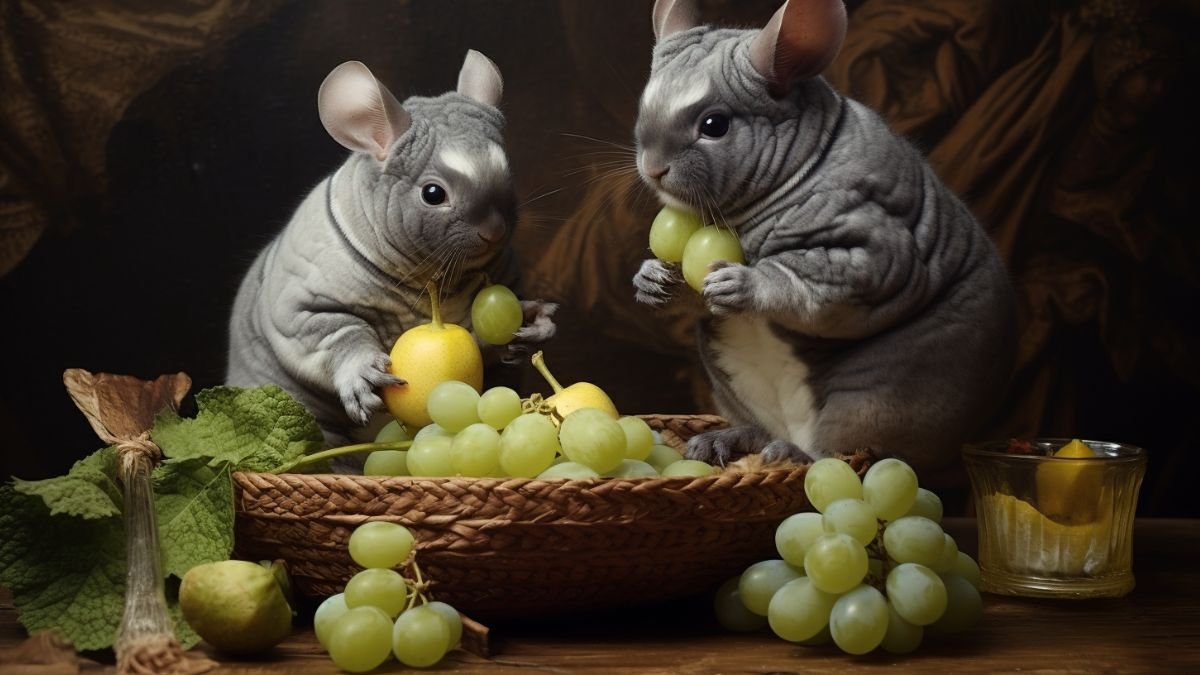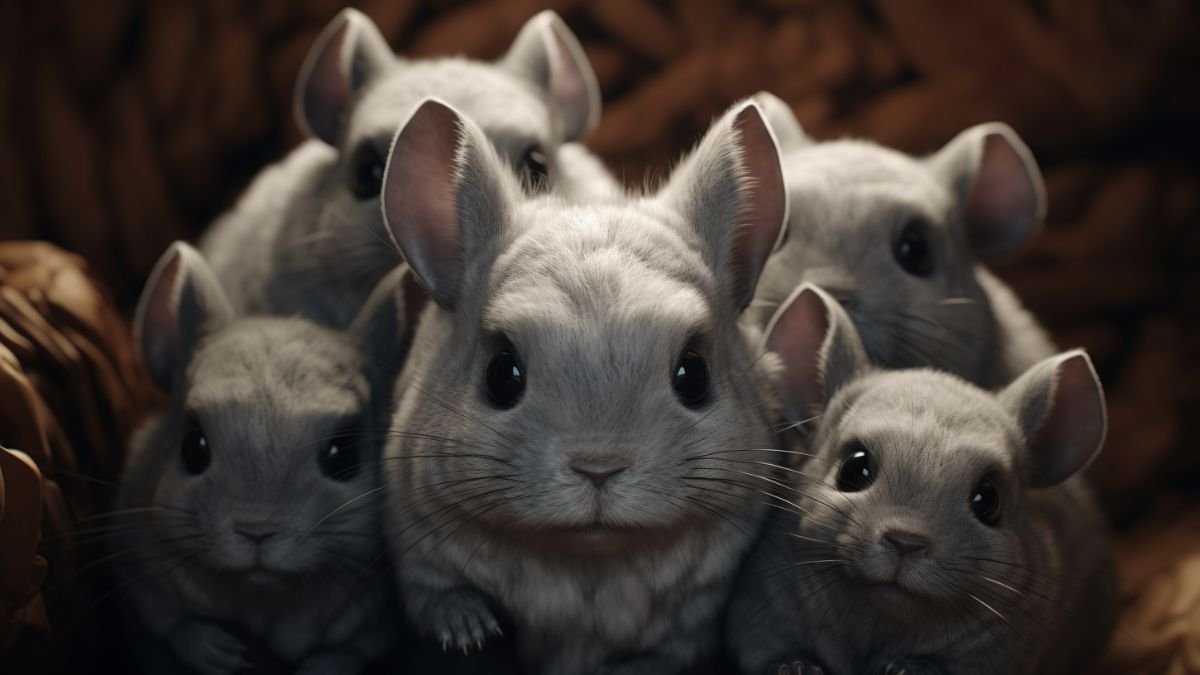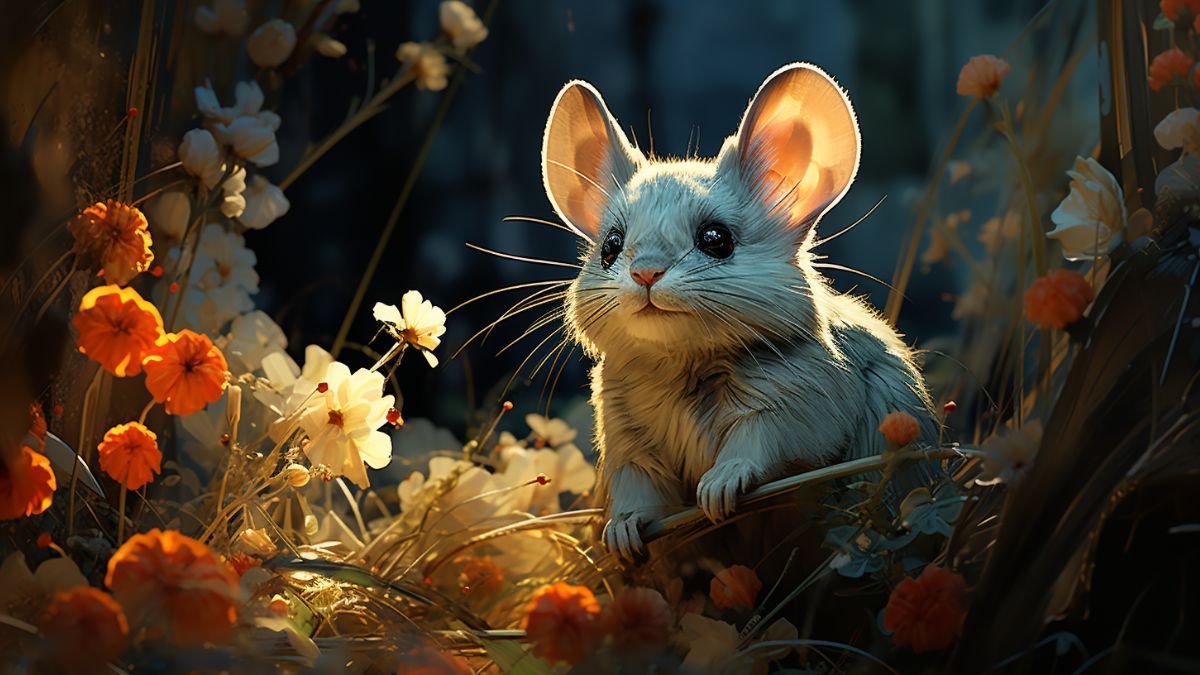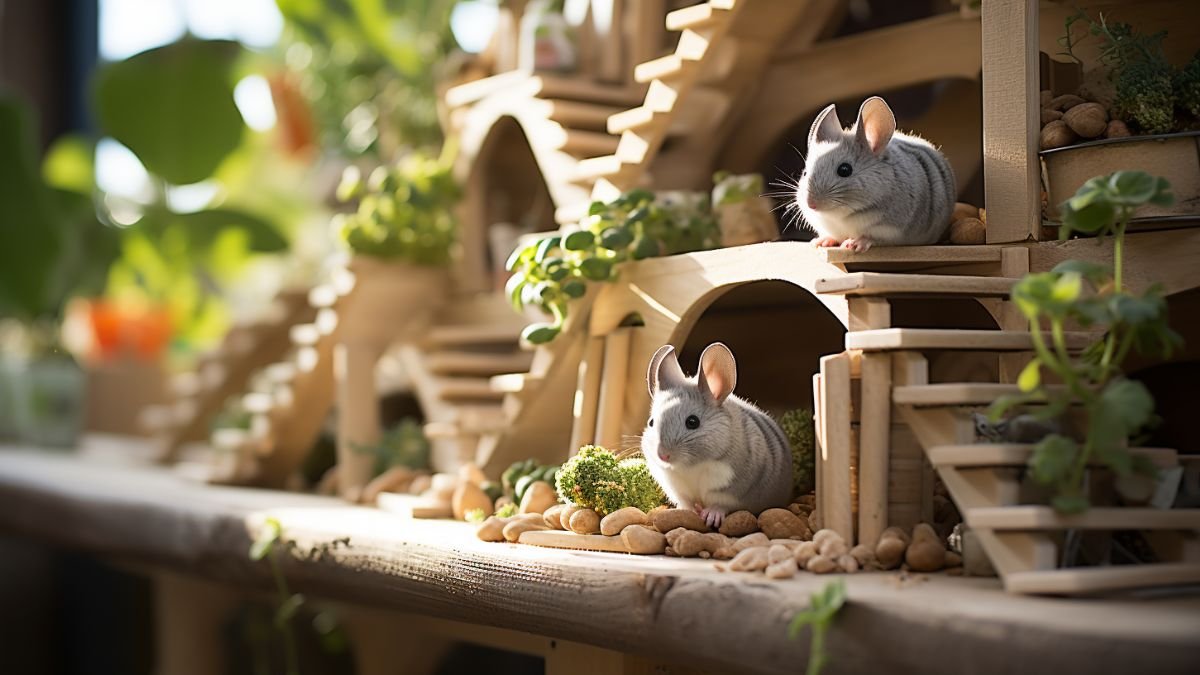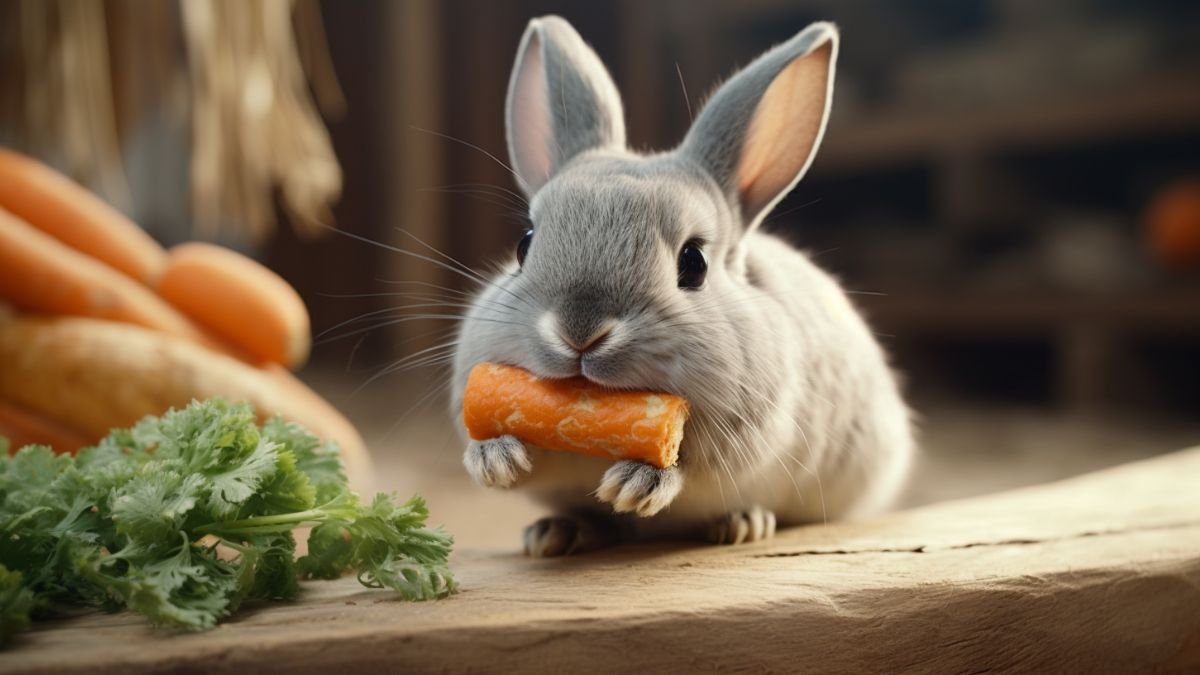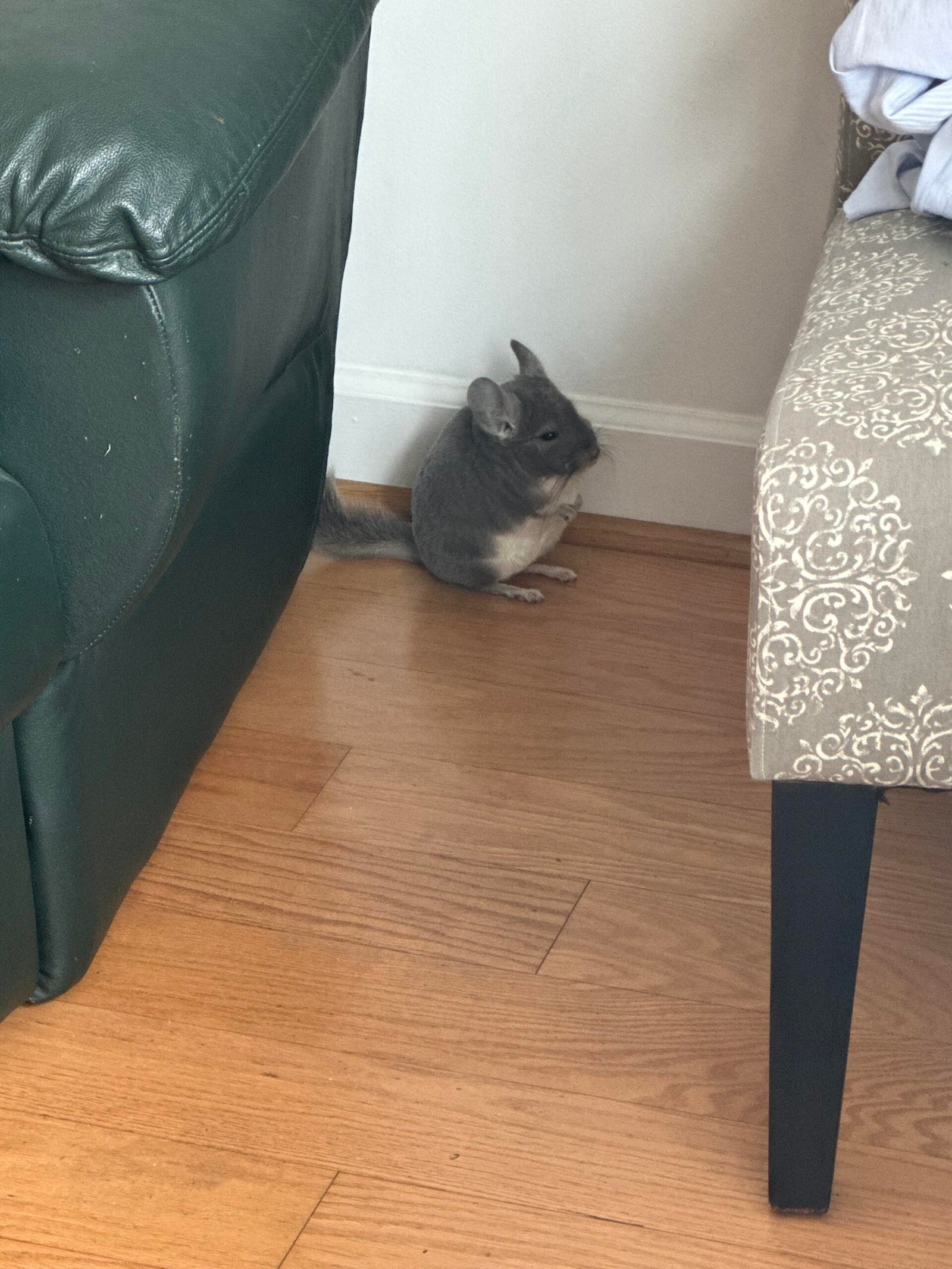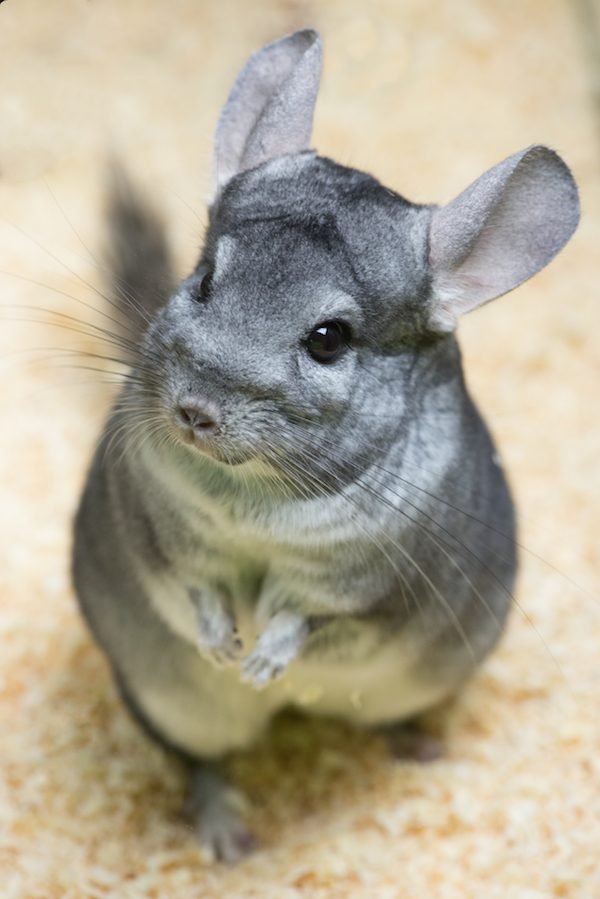
If you have a chinchilla, you probably wonder how often you should give it treats. Treats are a great way to bond with your furry friend and keep it happy.
But giving too many can harm your chinchilla’s health. You want to make sure you’re doing what’s best for your pet without spoiling it. You’ll discover exactly how often chinchillas should get treats and which ones are safe. Keep reading to learn the simple steps to keep your chinchilla healthy and happy!
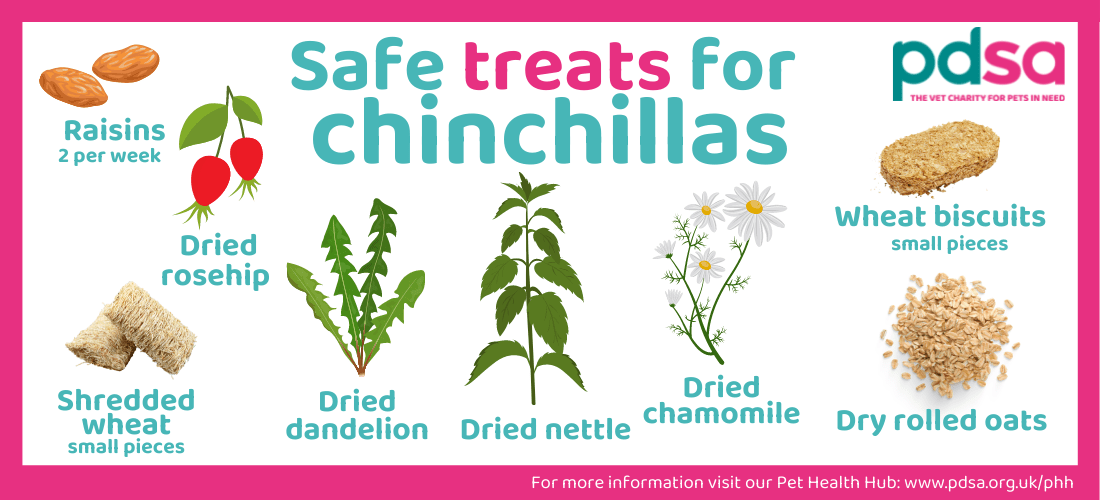
Chinchilla Diet Basics
Chinchillas should have treats only once or twice a week. Too many treats can harm their health. Small portions keep them happy and safe.
Understanding Chinchilla Nutrition
Chinchillas need a diet that supports their health and energy. Their digestive system works best with high-fiber foods. This helps keep their gut moving smoothly.
Primary food for chinchillas is hay. Timothy hay or orchard grass is ideal. It provides fiber and keeps their teeth healthy.
Pellets And Their Role
Special chinchilla pellets offer balanced nutrients. They are made to meet chinchillas’ dietary needs. Feed pellets in small, controlled amounts daily.
Too many pellets can cause weight gain. Always check the pellet quality for no added sugars or seeds.
Fresh Water Importance
Fresh water must be available at all times. Use a water bottle to keep water clean. Change water daily to avoid bacteria build-up.
Safe Treats For Chinchillas
Treats are not part of the daily diet. Use them sparingly to avoid digestive problems. Healthy treats include dried rose hips or small pieces of apple.
Avoid sugary or fatty snacks. They can harm your chinchilla’s health.
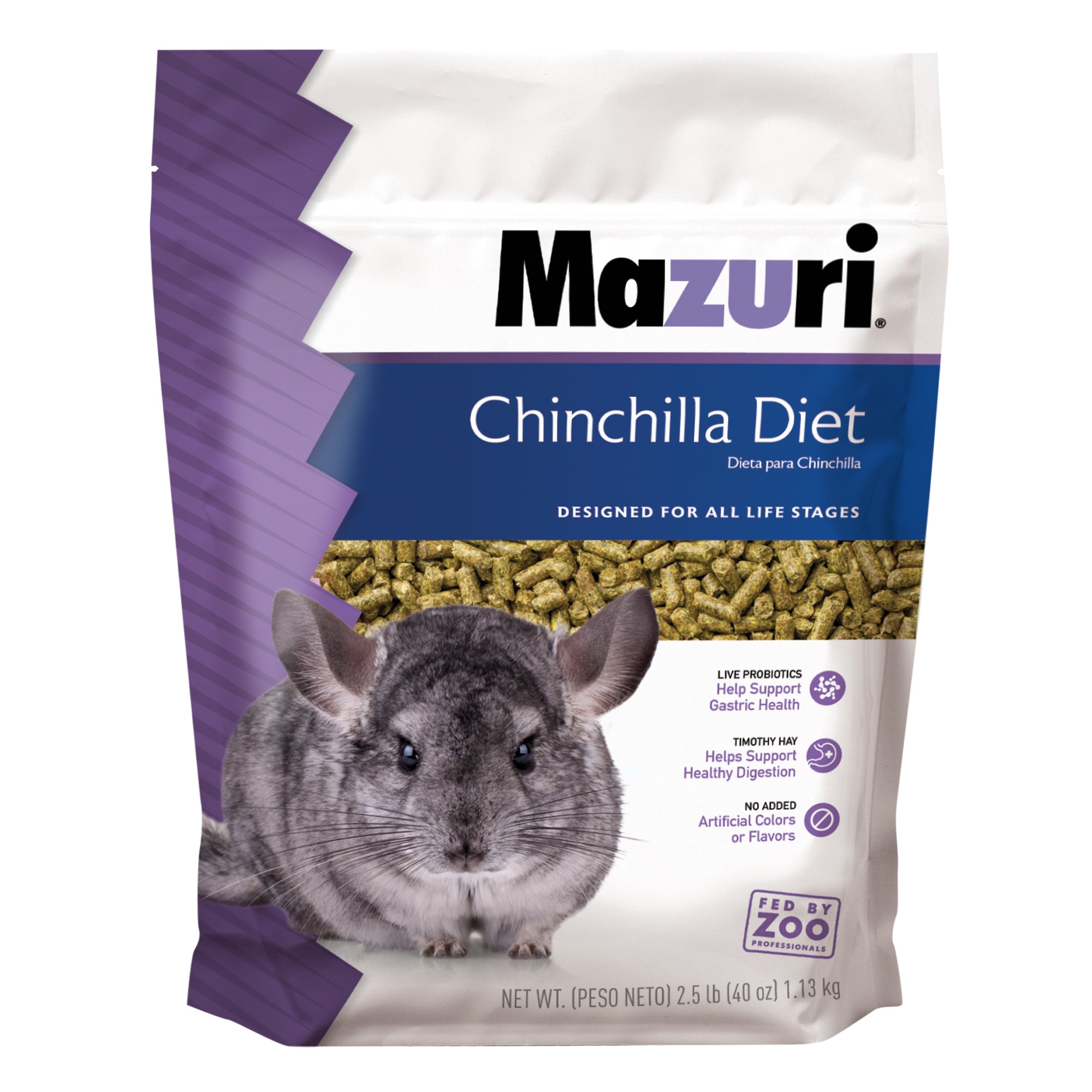
Safe Treat Options
Choosing safe treats for chinchillas is very important for their health. Chinchillas have delicate digestive systems. Not all snacks suit them. Pick treats that support their diet and keep them happy.
Safe treats should be low in sugar and fat. Natural options work best. Avoid processed or sugary foods. Treats must not replace their main food, but add fun and variety.
Dried Rose Hips
Dried rose hips are rich in vitamin C. They are crunchy and tasty for chinchillas. Offer them in small amounts only. Too much can upset their stomach.
Timothy Hay Cubes
Timothy hay cubes help keep teeth healthy. They provide fiber and are easy to chew. These cubes are safe and loved by chinchillas.
Plain Oatmeal
Plain oatmeal is a good occasional treat. It contains fiber and is gentle on digestion. Give only a small pinch once in a while.
Fresh Herbs
Fresh herbs like parsley or cilantro are safe treats. They add variety and nutrients. Wash herbs well before giving to your chinchilla.
Unsweetened Apple Slices
Small pieces of unsweetened apple are a nice treat. They offer natural sweetness without added sugars. Limit portions to avoid digestive upset.
Signs Your Chinchilla Deserves Treats
Chinchillas are small pets with big personalities. Treats help reward good behavior and keep them happy. But how do you know when your chinchilla deserves a treat? Watch for signs that show they feel good or have done something special.
Recognizing these signs helps you give treats at the right time. This keeps your chinchilla healthy and excited. Treats should not be given too often but only when your chinchilla truly deserves them.
Active And Playful Behavior
A chinchilla that runs, jumps, and plays shows it is feeling great. Playful actions mean they have energy and good health. These moments are perfect for giving a small treat. It encourages them to stay active and happy.
Learning New Tricks
Chinchillas can learn simple tricks like coming when called. When your pet tries to learn, it shows they want to interact. Rewarding this effort with a treat makes learning fun. It helps build trust between you and your chinchilla.
After Grooming Or Bathing
Chinchillas clean themselves by dust bathing. After this, they often feel calm and satisfied. Giving a treat after grooming supports this good behavior. It shows your chinchilla that self-care is appreciated.
Calm And Gentle Moments
Sometimes chinchillas sit quietly or relax near you. These gentle moments are special. Offering a treat during calm times strengthens your bond. It helps your pet feel safe and loved.
Recommended Treat Frequency
Giving treats to chinchillas is a special way to bond. Treats should be given carefully to keep them healthy. Too many treats can harm their digestion and teeth. Knowing the right treat frequency helps maintain their well-being.
Chinchillas have sensitive stomachs. Their diet mainly consists of hay and pellets. Treats are just extras, not main food. Limiting treats prevents obesity and digestive issues.
How Many Treats Per Week?
Experts suggest giving treats no more than two or three times a week. Small portions are best. A tiny piece of dried fruit or a pellet treat works well. Avoid sugary or fatty treats to protect their health.
Best Time To Give Treats
Offer treats after regular feeding times. This keeps their main diet balanced. Giving treats as a reward during training is ideal. It creates a positive experience without overeating.
Signs Of Overfeeding Treats
Watch for changes in behavior or appetite. Loose stools or lack of energy may show problems. If you see these signs, reduce treat frequency. Always check with a vet if unsure.
Risks Of Overfeeding Treats
Chinchillas need treats just like any pet. But too many treats can cause problems. Treats usually have more sugar and fat than their regular food. This can upset their health in many ways.
Overfeeding treats can lead to serious health issues. It can change their digestion and make them sick. Treats should be given carefully and in small amounts only.
Digestive Problems
Chinchillas have sensitive stomachs. Eating too many treats can cause diarrhea or constipation. Their normal diet keeps their gut healthy. Treats can disturb this balance.
Weight Gain And Obesity
Treats are often high in calories. Too many calories cause weight gain fast. Obese chinchillas may have trouble moving. Their joints and heart can suffer.
Dental Issues
Chinchillas’ teeth grow continuously. They need to chew hard food to keep teeth healthy. Sweet or sticky treats can cause tooth decay. This leads to pain and eating problems.
Behavior Changes
Overfeeding treats can change behavior. Chinchillas may become picky eaters. They might refuse their regular healthy food. This affects their overall nutrition.

Healthy Treat Alternatives
Chinchillas need treats to stay happy, but not all treats are good for them. Healthy treat alternatives help keep chinchillas safe and well-fed. These treats provide nutrients without harming their delicate digestion. Choosing the right treats supports their health and keeps them active.
Healthy treats also prevent obesity and dental problems. They offer variety and make bonding time fun. Let’s explore some safe and tasty options for your chinchilla.
Fresh Herbs
Fresh herbs like parsley, cilantro, and basil are great treats. They are low in calories and full of vitamins. Herbs add new flavors that chinchillas enjoy. Make sure to wash them well before giving them.
Dried Rose Hips
Dried rose hips are rich in vitamin C. They help boost the immune system naturally. These small, crunchy treats are easy to digest. Offer them in small amounts for best results.
Timothy Hay Cubes
Timothy hay cubes are a healthy, chewable treat. They support dental health by wearing down teeth. Chinchillas love the texture and natural taste. Use these cubes to replace sugary or fatty snacks.
Small Pieces Of Apple
Small apple pieces can be a sweet treat. Apples provide fiber and vitamins but contain sugar. Limit treats to a tiny piece once or twice a week. Always remove seeds before feeding.
Carrot Slices
Fresh carrot slices offer crunch and nutrients. They are rich in beta-carotene and fiber. Feed in small amounts to avoid digestive issues. Carrots add color and variety to their diet.
How To Introduce New Treats
Introducing new treats to your chinchilla requires care and patience. Sudden changes in diet can upset their sensitive stomachs. A slow approach helps avoid health issues and lets your pet enjoy the new flavors safely.
Start with small amounts of the new treat. Watch your chinchilla’s reaction closely. Look for signs of liking or any discomfort. This process builds trust and helps find treats your pet enjoys.
Offer Small Portions First
Give tiny pieces of the new treat at first. This limits risk and helps your chinchilla adjust. Small portions are easier to digest and prevent tummy troubles.
Observe Your Chinchilla’s Behavior
Notice how your chinchilla acts after trying new treats. Look for signs like eagerness or refusal. Also watch for any signs of upset stomach or discomfort.
Introduce One Treat At A Time
Offer only one new treat before trying another. This way, you can identify which treats suit your chinchilla best. It also makes it easier to spot any negative effects.
Wait Several Days Between New Treats
Give your chinchilla a few days to adjust before adding another new treat. This gap helps maintain a balanced diet. It also ensures your chinchilla stays healthy and happy.
Treats For Training Purposes
Using treats during training helps chinchillas learn new behaviors quickly. Treats act as a reward, encouraging them to repeat good actions. Training sessions become more effective and enjoyable for both pet and owner.
Choosing the right treat is important. The treat should be healthy and small. This keeps your chinchilla motivated without overeating. Treats for training need to be given often but in small amounts.
How Often To Give Treats During Training
Give treats immediately after your chinchilla does the right behavior. This helps them connect the treat to the action. Offer treats several times during short training sessions. Limit the total treats to avoid health problems.
Best Types Of Treats For Training
Use small pieces of dried fruit or plain oats. These are tasty and safe for chinchillas. Avoid sugary or fatty snacks that can harm their health. Keep treats simple and natural for best results.
Signs Your Chinchilla Needs Fewer Treats
Watch for weight gain or less interest in treats. These signs mean you should reduce treat frequency. Use praise or gentle petting as alternative rewards. Balance treats with a healthy diet and exercise.
Monitoring Your Chinchilla’s Response
Monitoring your chinchilla’s response is key when giving treats. It helps keep your pet healthy and happy. Watch how your chinchilla acts after receiving a treat. Changes in behavior or health can show if the treat is good or bad.
Check for signs like excitement or hesitation. A happy chinchilla often eats the treat quickly and looks alert. If your pet ignores the treat, it might not like the taste or texture. Keep track of these reactions to learn your chinchilla’s preferences.
Observing Eating Habits
Note how much and how fast your chinchilla eats treats. Eating too fast can cause choking. Eating too slow or refusal might mean dislike or illness. Small bites over time are better than large amounts at once.
Watching Physical Health
Look for changes in your chinchilla’s fur, eyes, and weight. Dull fur or watery eyes can signal health problems. Sudden weight gain or loss needs attention. Treats should not replace a balanced diet.
Tracking Behavioral Changes
Notice if your chinchilla becomes more active or lethargic. Sudden changes in mood might link to treat ingredients. Aggression or hiding can also be signs of discomfort. A calm and playful pet usually means the treat is safe.
Frequently Asked Questions
How Often Should Chinchillas Get Treats Weekly?
Chinchillas should get treats 1-2 times per week to keep them healthy and happy.
What Types Of Treats Are Safe For Chinchillas?
Safe treats include small pieces of dried fruit, rose hips, and hay cubes.
Can Too Many Treats Harm Chinchillas?
Yes, too many treats can cause digestive problems and obesity in chinchillas.
How Much Treat Is Suitable For A Chinchilla?
Only a small pinch or one tiny piece of treat is enough per serving.
Should Treats Replace Regular Chinchilla Food?
Treats should never replace regular hay and pellets, which are chinchillas’ main diet.
What Are Signs Of Overfeeding Treats In Chinchillas?
Look for weight gain, diarrhea, or less activity as signs of overfeeding treats.
Can Chinchillas Eat Fresh Fruits As Treats?
Fresh fruits are sugary and not recommended; dried fruits are safer in small amounts.
How To Introduce New Treats To Chinchillas?
Introduce one new treat at a time and watch for any bad reactions.
Conclusion
Treats make chinchillas happy but should be given with care. Offer treats only once or twice a week. Small amounts keep them healthy and prevent stomach problems. Choose safe, chinchilla-friendly treats like dried rose hips or plain oats. Avoid sugary or fatty snacks that harm their health.
Always watch your pet’s reaction to new treats. Balanced feeding helps your chinchilla stay active and strong. Treat time can be special, but don’t overdo it. Healthy habits mean a happy chinchilla for years to come.



